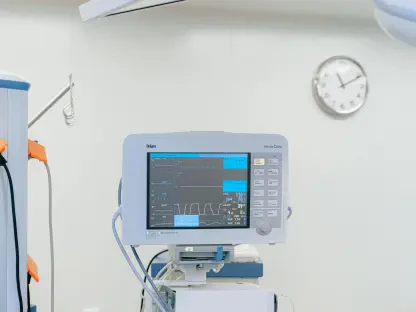How sustainable are the current practices within Medicare Advantage? With growing concerns about the unexpected financial ramifications tied to Medicare Advantage billing methods, stakeholders are beginning to probe deeper into potential reforms that could reshape the landscape of healthcare affordability.
Why Reform is Crucial
In the world of Medicare Advantage, the stakes are high. The financial ecosystem associated with this healthcare program is vast, with billions of dollars potentially being overpaid to health plans. These overpayments significantly contribute to broader healthcare challenges, impacting both affordability and accessibility. The mounting evidence of fund mishandling has fueled public concern, prompting discussions around the necessary steps toward reform.
Navigating Proposed Billing Changes
At the center of potential reform lies the complex issue of home health risk assessments. These assessments, while critical, often lead to overpayments through diagnoses that either lack corroboration in other settings or are exaggerated. Legislative initiatives, such as the comprehensive One Big Beautiful Bill, aim to tackle these facets by introducing robust measures and guidelines, thus signaling a possible shift in the Medicare Advantage billing narrative.
Perspectives in the Reforms Debate
Leading voices in the healthcare industry, including influential players like UnitedHealth Group and Humana, have entered the conversation advocating for meaningful changes in billing practices. Their recommendations include prohibiting payments from diagnoses made solely during in-home visits, enhancing audit practices, and ensuring diagnosis validation through follow-up care. Experts and federal investigations underscore this need, highlighting a concerning $7.5 billion in overpayments that reflect a systemic issue.
Examining Implications for Stakeholders
Reform strategies carry broad practical implications. Key proposals promote more transparent practices and increased workforce engagement, aimed at fostering a more sustainable healthcare model. For providers, this translates into an emphasis on accuracy and accountability. Medicare Advantage enrollees, in contrast, may experience a heightened focus on care quality and navigating their specific health needs. Long term, these changes may fortify the program’s sustainability, securing its role in America’s healthcare structure.
Reflecting on Future Directions
As reform efforts continue to evolve, the potential to redefine the Medicare Advantage landscape becomes evident. By emphasizing increased transparency and accountability, stakeholders move toward a paradigm where health plans maintain fiscal responsibility. With lawmakers, insurers, and patient advocates engaged in ongoing dialogue, the potential for meaningful change rests on collaborative efforts to ensure equitable healthcare access for all. The call for well-considered strategies is crucial, as comprehensive reforms offer a promising path to address systemic challenges and enhance program sustainability in the long run.









